2020 Kawasaki Vulcan 1700 Voyager ABS
Contents
The 2020 Vulcan 1700 Voyager ABS is Kawasaki’s top-of-the-line touring cruiser model. Powered by a 1700 cc SOHC dual cooling (liquid and air) 52 degree V-twin engine producing 72.5 crank HP and 100 lbs-ft of crank torque, the Vulcan 1700 Voyager easily cruises at highway speed.
As expected from a top of the line model, almost everything except a kitchen sink is included on the Vulcan 1700 Voyager: Electronic cruise control, electronic self adjusting throttle valves to optimize fuel efficiency, unified ABS braking, speakers, all radio types including satellite radio, integrated intercom compatibility with most helmet mounted comm systems, and integrated luggage compartments.
The 2020 Kawasaki Vulcan 1700 Voyager ABS starts at $17,499 US/$20,599 CA
On this page: we’ve curated specs, features, news, photos/videos, etc. so you can read up on the new Kawasaki Vulcan 1700 Voyager ABS in one place.
Model Overview
General Info
- Price: $17,499 US/$20,599 CA
- Key Features:
- Abs (Anti-lock Brake System)
- Cruise Control
- LED Lighting
Key Specs
- Engine type: 1700cc, 4-stroke, 52 V-twin, liquid-cooled
- Power: 72.5 Hp
- Wet weight: 895 lb
- Seat height: 28.7 in
2020 Kawasaki Vulcan 1700 Voyager ABS Specifications
ENGINE |
||
| Engine | 1700cc, 4-stroke, 52 V-twin, liquid-cooled | |
| Power | 72.5 Hp | |
| Bore x Stroke | 102.0mm x 104.0mm | |
| Compression Ratio |
9.5:1
|
|
| Fuel System | DFI® 42mm throttle bodies (2) | |
| Starter | Electric | |
| Lubrication | Forced lubrication, wet sump with oil cooler | |
DRIVETRAIN |
||
| Clutch | Wet multi-disc, manual | |
| Transmission | 6-speed | |
| Final Drive | Carbon fiber-reinforced belt | |
CHASSIS |
||
| Suspension Front | 45mm hydraulic fork/5.5 in | |
| Suspension Rear | Swingarm with twin air-assisted shocks, with 4-way rebound damping/3.1 in | |
| Brakes Front |
Dual 300mm discs, dual four-piston calipers, K-ACT II ABS
|
|
| Brakes Rear |
Single 300mm disc, twin-piston caliper, K-ACT II ABS
|
|
| Tires Front | 130/90×16 | |
| Tires Rear | 170/70×16 | |
| Fuel Tank Capacity | 20 L (5.3 US gal.) | |
| Color | Metallic Carbon Gray/ Metallic Spark Black | |
ELECTRICAL |
||
| Ignition | TCBI with digital advance | |
| Spark Plugs | ||
| Headlight | LED | |
| Tail Light | LED | |
DIMENSIONS |
||
| Overall Length | 100.8 in (2560 mm) | |
| Overall Width | 39.2 in (995 mm) | |
| Overall Height | 61.0 in (1,550 mm) | |
| Wheelbase | 65.6 in (1,665 mm) | |
| Ground Clearance | 5.3 in (135 mm) | |
| Seat Height | 28.7 in (730 mm) | |
| Curb Weight | 895 lbs (405 kg) | |
WARRANTY |
||
| Warranty | 36 Month Limited Warranty | |
| Extension | ||
2020 Kawasaki Vulcan 1700 Vaquero ABS Features
Electronic Cruise Control
Electronic Cruise Control allows a desired speed (engine rpm) to be maintained with the simple press of a button. Once activated, the rider does not have to constantly apply the throttle. This reduces stress on the right hand when traveling long distances, enabling relaxed cruising and contributing to a high level of riding comfort.
Electronic Throttle Valves
Kawasaki’s fully electronic throttle actuation system enables the ECU to control the volume of both the fuel (via fuel injectors) and the air (via throttle valves) delivered to the engine. Ideal fuel injection and throttle valve position results in smooth, natural engine response and the ideal engine output. The system also makes a significant contribution to reduced emissions.
Electronic throttle valves also enable more precise control of electronic engine management systems like S-KTRC and KTRC, and allow the implementation of electronic systems like KLCM, Kawasaki Engine Brake Control, and Electronic Cruise Control.
K-ACT (Kawasaki Advanced Coactive-braking Technology) ABS
At its heart, K-ACT ABS is an advanced anti-lock braking system, designed to keep tires from locking up during braking. But K-ACT ABS was designed to be used on touring models weighing in excess of 300 kg (661 lb) – and that is before adding a passenger and luggage.
Complementing its standard ABS function, K-ACT ABS links the front and rear brakes. It monitors the brake force the rider is exerting at both the front and rear, and takes into consideration vehicle speed to ensure highly effective braking while maintaining chassis stability.
For example, let’s say the rider pulls on the front brake lever. To keep the bike from pitching forward, the ABS ECU actuates the rear brake (via fluid pumps) to ensure that front-rear balance is maintained. Should the rider push the rear brake pedal, the system actuates the front brake as well to distribute the load more evenly so that the rear wheel does not lock up. Based on the vehicle speed, K-ACT decides the optimum hydraulic pressure to send to each caliper, ensuring that even with a heavy motorcycle, stable braking performance is possible.
2020 Kawasaki Vulcan 1700 Voyager ABS Photos
Links
Kawasaki Official Websites

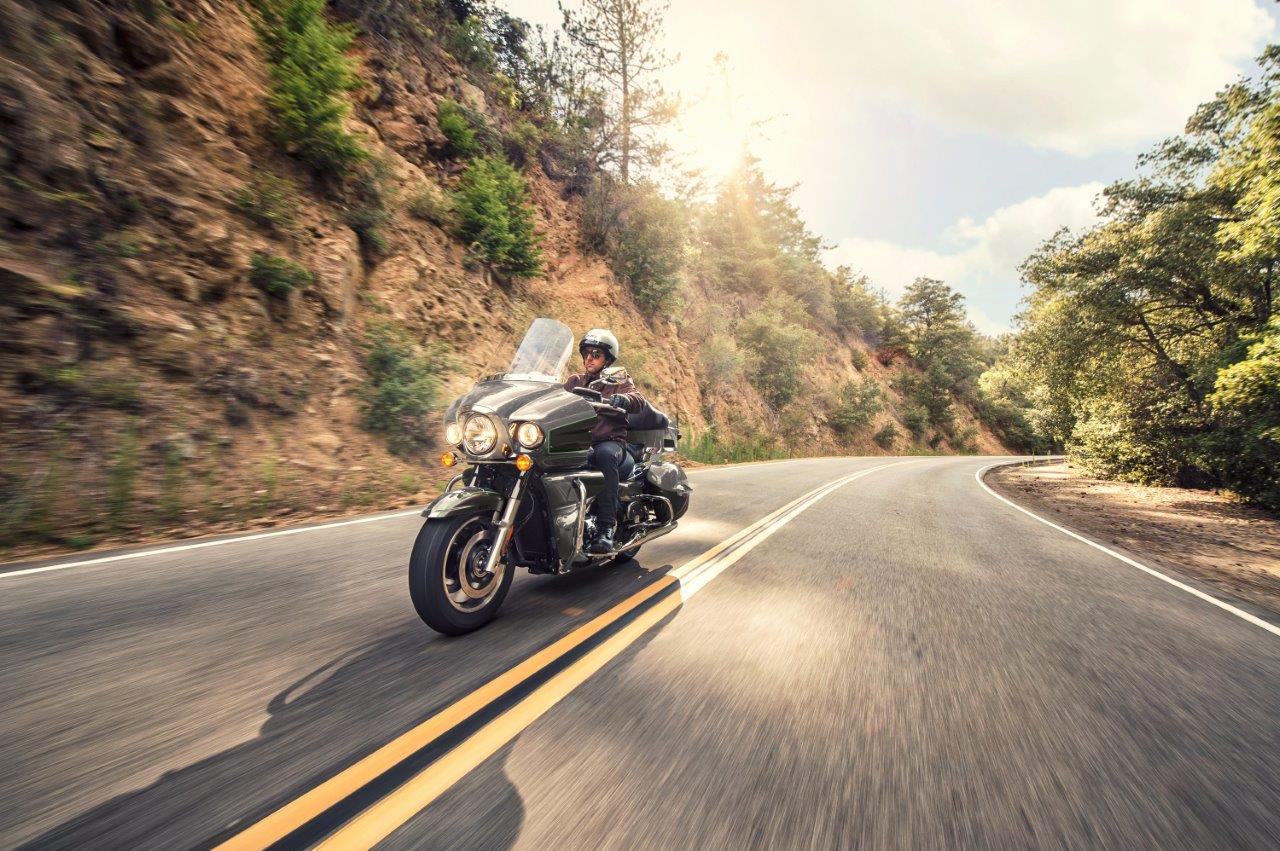
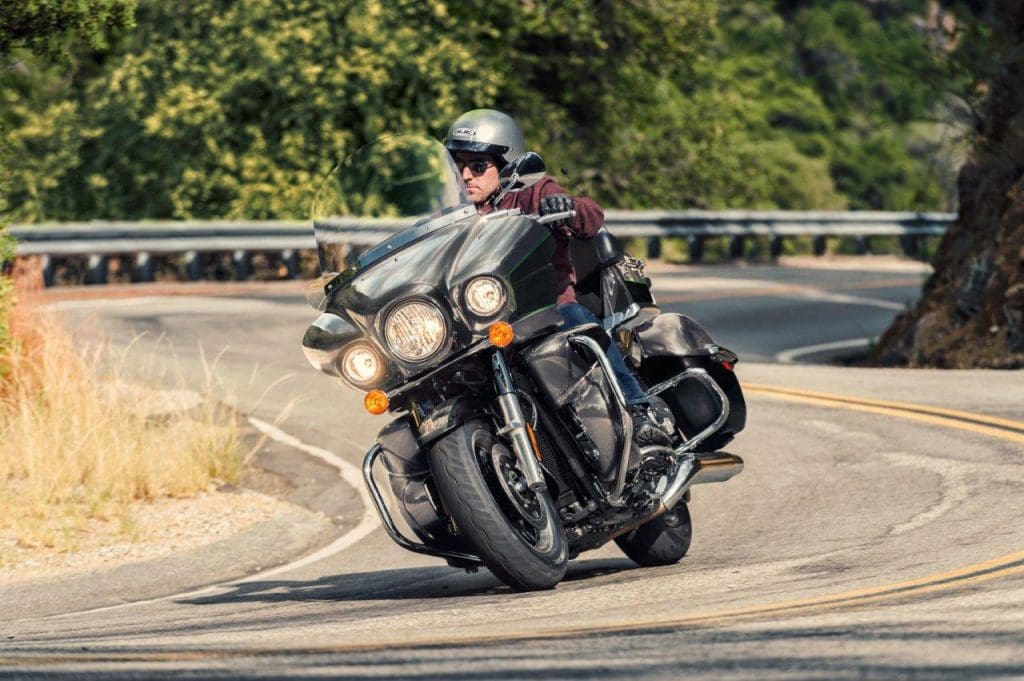
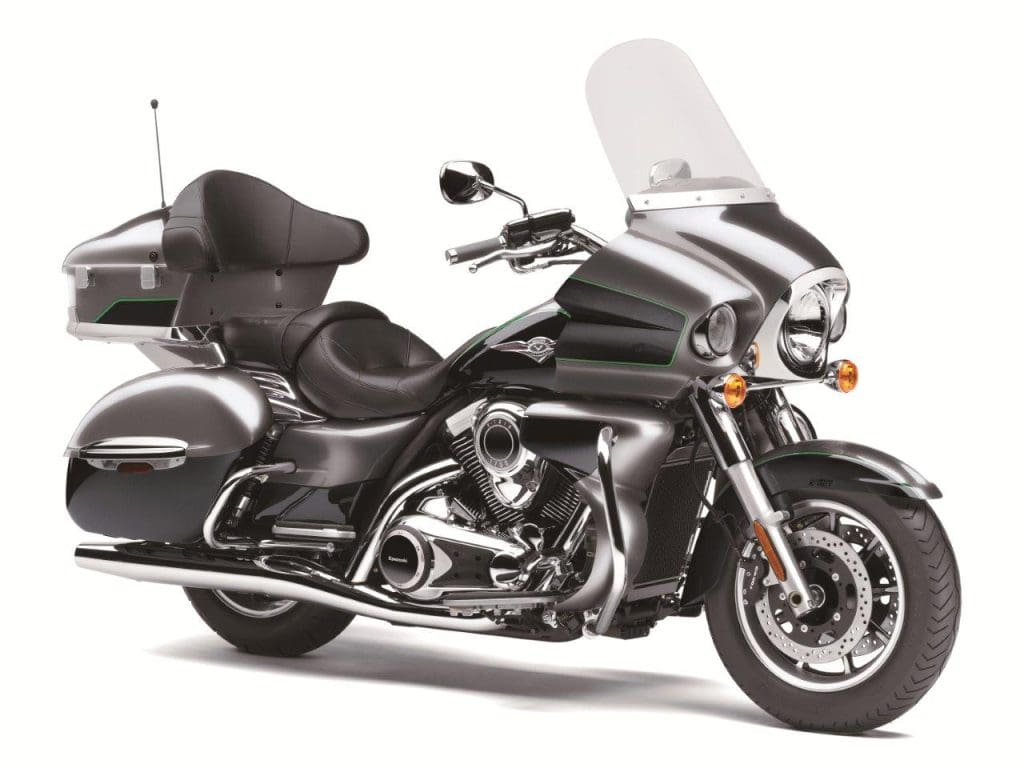
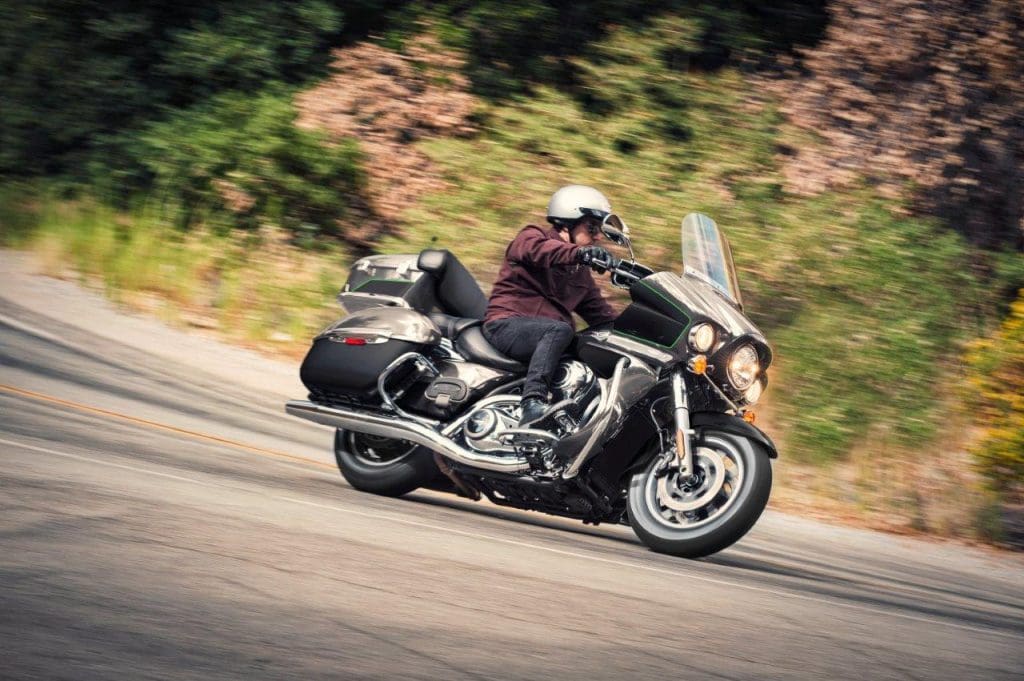
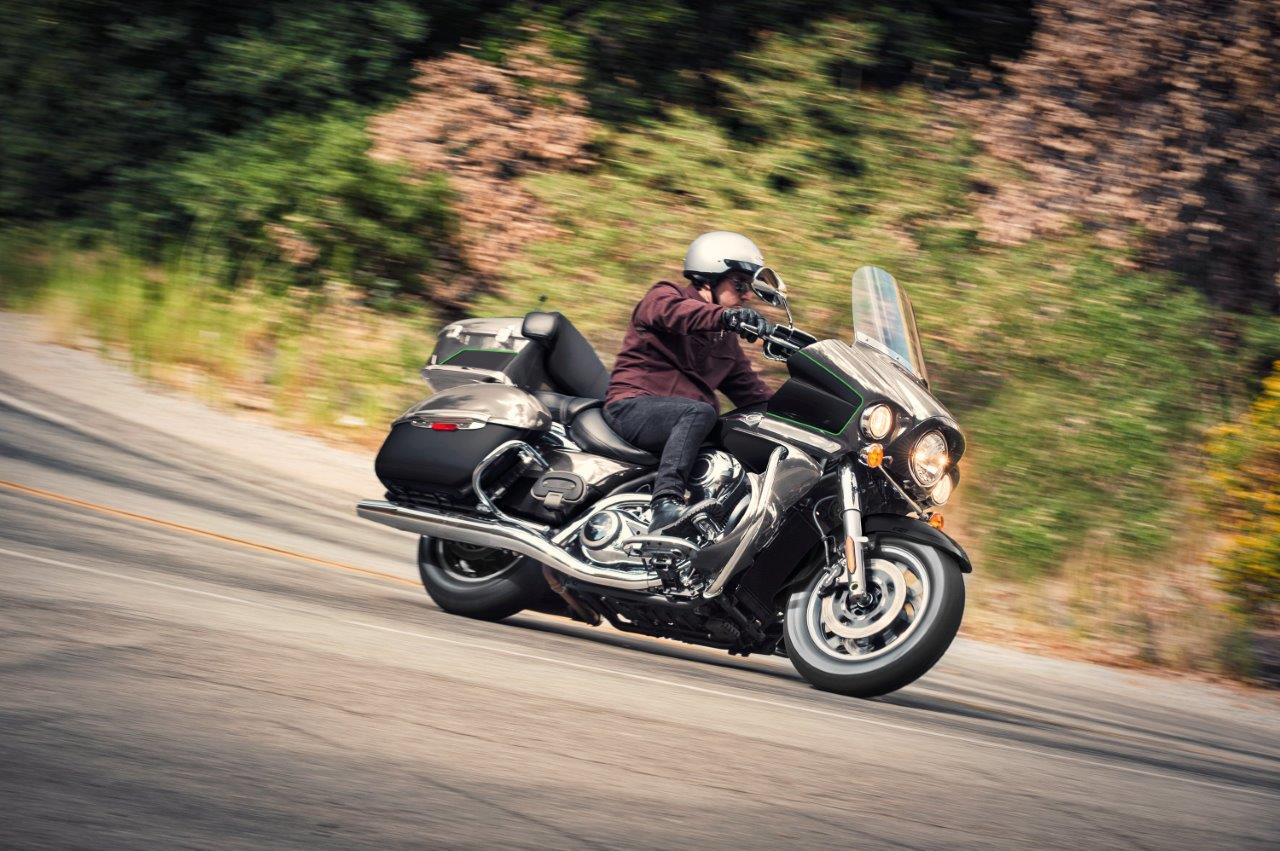
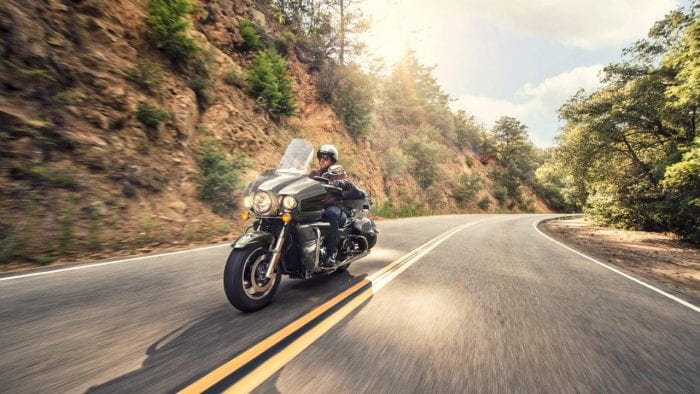
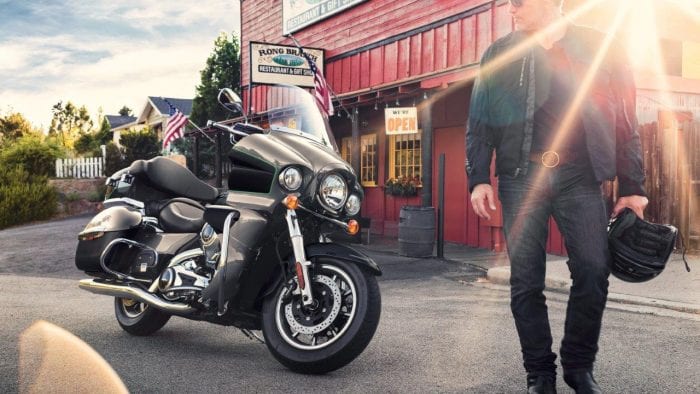
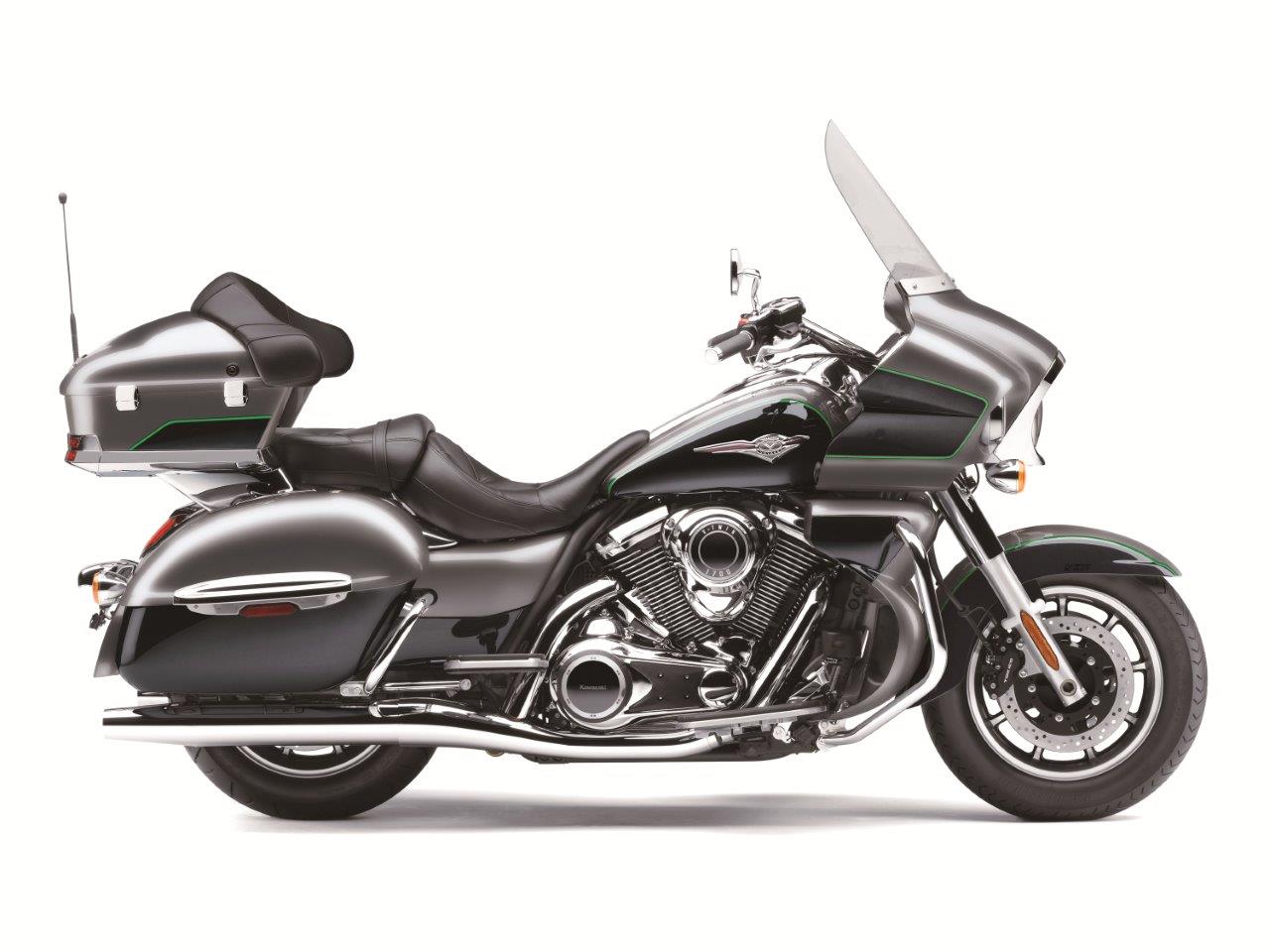
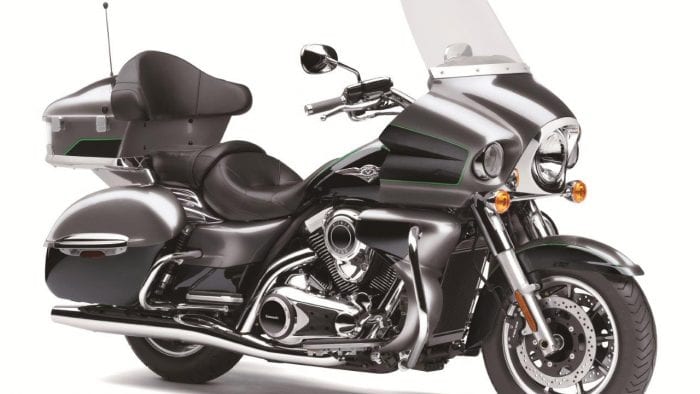
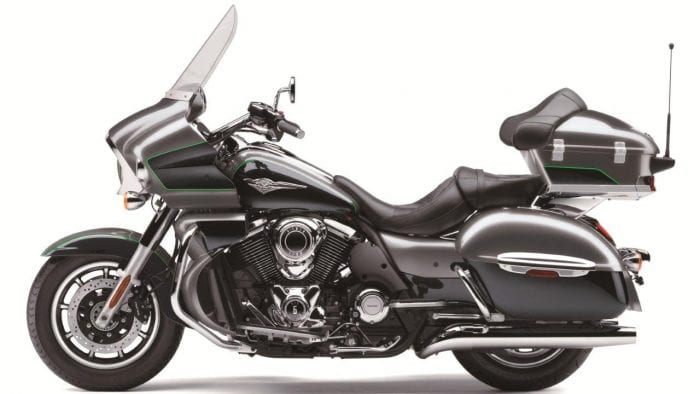
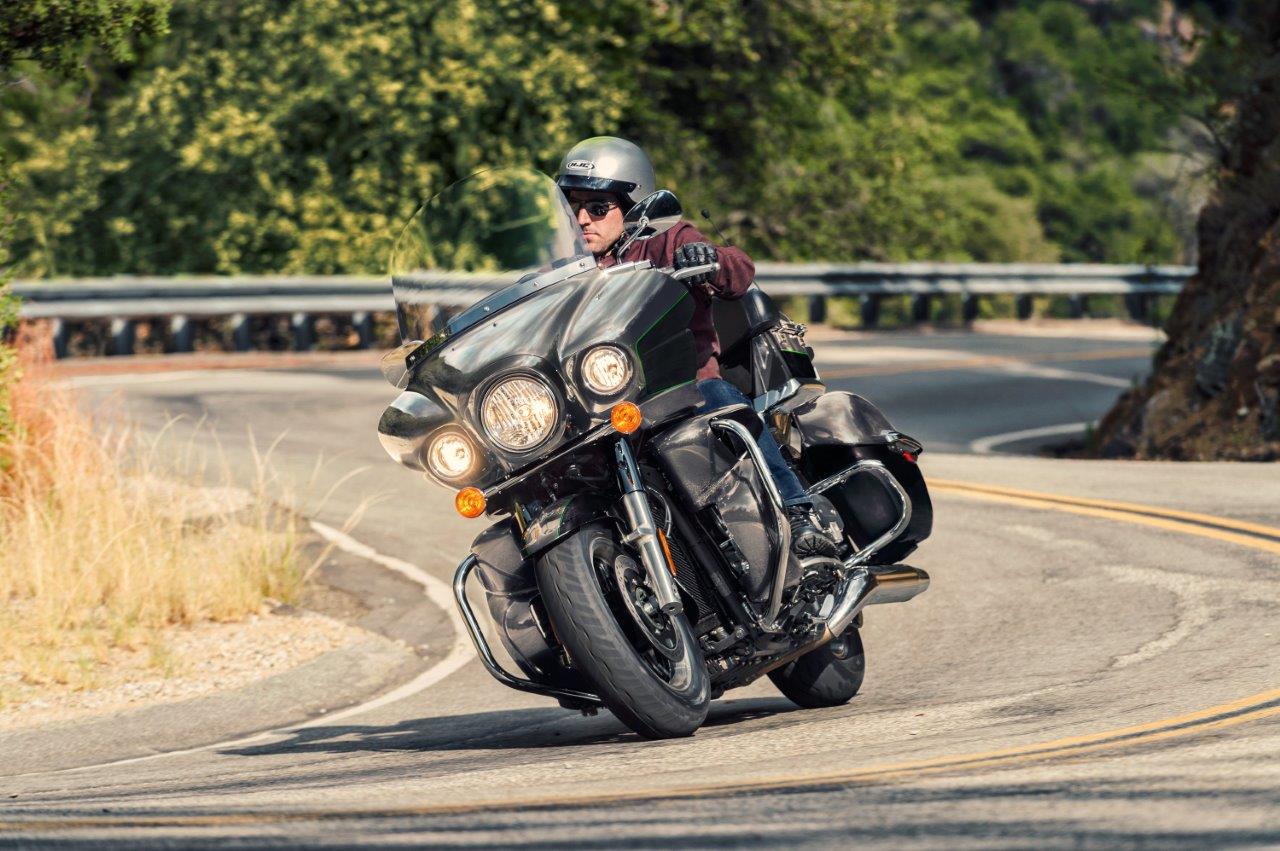

Might have to rethink some things. This is a beautiful bike,
I agree this is a beautiful bike, I just purchased one. Excellent price point for a touring beast. Title lists hp rating in USA as 82.5, Torque is higher too. I am so thrilled with it I had mine glass coated to protect the sheen.
purchased one 8-28-2020
200 miles exhaust leak and low brake fluid
Great so far wife loves it
Roger, you’ve had an exhaust leak and issue tied to low brake fluid after 200 miles of riding?